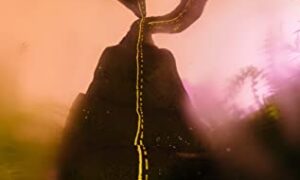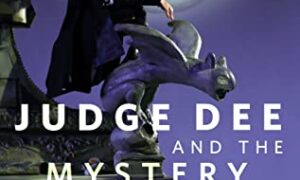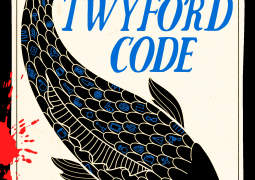 Elegant Complexity: A Study of David Foster Wallace’s Infinite Jest by Greg Carlisle
Elegant Complexity: A Study of David Foster Wallace’s Infinite Jest by Greg Carlisle
My rating: 5/5 cats





infinite jest is like the best lover i have ever had. and i knew we were not exclusive; i knew it had been around and MFSO had had an equally intense relationship with it, but i can honestly say i have never felt this way about a book before, and i never expect to again, this is a once-in-a-lifetime event.(i know one time i compared graceling to a romantic relationship, but that was an analogy – this is true true love)
reading this companion book is like revisiting old love letters. i would frequently get a warm rush of emotion when a particular scene was deconstructed, or when links and connections were made that despite my seven readings of the source material, and the two previous companion books, i had never seen.
because this book is exhaustive. but never exhausting. not for a fan. reading this book is like finding out that the whole time you were together, your partner secretly played the accordion. and played it well. there are obviously allusions i caught: extensive hamlet connections, clockwork orange, various david lynch moments. but there are others with which i was less familiar: the beatles, tolstoy, tennyson. and i am sure there are some “connections” that are just serendipitous to the researcher; DFW was good, but one or two of these just have to be happy accidents, don’t they??
and i just can’t help but yearn. the same way the films of JOI were never made, or never found (orrrr weeerrreee thhheeeyyy?) and his suicide prevented so many more opportunities and advances in his medium, so the fucking suicide of DFW has destroyed so much potential. and i get angry, i do, but to me this book – this perfect dream, this religion – it does more for me than any real-world encounter ever could. and that’s the irony, right?? me, slackjawed, engaged in my entertainment, losing my ability to connect to anything except this illusion. shattering.
and some lit crit sucks all the juice from a text and leaves it a husk of critical jargon and historical precedence. greg carlisle makes it sing. you can feel his excitement as he makes connection after connection, even with seemingly-minor repetitions of words like “blue” or “circular”, or images of “spiders” or “waste.” it is all cataloged and he makes meaning out of it that is astonishing.
infinite jest is a novel that is, of course, “constructed as much out of what is missing as what’s there.” but g.c. sure makes a lot of what is there. this is balls to the wall, minute vivisection.
here is an example of a particularly awesome passage:
Gately remembers the ex-Navy “M.P.” and dreams of Joelle (M.P., Madame Psychosis), who in one dream had the face of a “jowly British P.M..” (cf Pat Montesian as P.M. on p 178). Matthew Pemulis (M.P.) awaits an opportunity to consume DMZ (madame psychosis). in this section, Mrs. Waite dies and Death says “wait.”
that sound is my head exploding. i wish i had a dick, so i could watch it become tumescent.
and this – oh my god:
Just before racial slurs and references to white supremacy occur in the narrative, Gately thinks of his first joint as his first “duBois.” is this intended to resonate with the name of W.E.B. Du Bois, balancing the racial slurs in Gately’s memory with reference to an African American hero? does the white supremacist’s being an Orkin man (an exterminator, but not from Terminex and not Public Enemy’s Terminator x) resonate with the idea of roaches, both in terms of marijuana and of the extermination of roaches by Or[k]in?
and this – pretty much the last line in the book, before the “more questions” section and many diagrams and chronologies:
The end of Infinite Jest brings us back to the beginning. At the end of the novel, Gately is unable to communicate; at the beginning of the novel, Hal is unable to communicate. We can begin the cycle again and follow Gately’s narrative thread through the DuPlessis incident and recovery and gunshot wound and memories of substance abuse. We can try to better understand Hal and to discern the reasons for his behavior in the Year of Glad. But there will always be a gap of one year (between November Y.D.A.U. and November Y.G., cf this study’s “more questions”) in these elegant, complex narrative cycles that we must navigate by leaps of imagination. With each cycle of our reading, the gap will seem less daunting; but it will always remain open. As we read, we must continue to join the narrative threads – we must connect everything – in the nebulous underworld of our minds.
oh my god, it is so true. you will get closer and closer, but you will never ever fill in all the gaps, and that is what makes this the most wonderful, frustrating, rewarding book ever. and what makes a study like this one so dick-hardeningly good.
buy this book. read this book. and then read infinite jest again.
i recommend this book to anyone passionate enough about IJ. it is not for people who read the book just as a landmark kind of thing – you won’t appreciate it. it is only for the truly nutso. this man’s passion for IJ makes me so happy. i picture him sitting on the floor with multiple copies of infinite jest splayed open all around him, going through with different colored highlighters: greg carlisle, i fucking applaud you and what you have done here. i guarantee i will be reading this one again.
update: or i WOULD, but i don’t think i’m ever getting my copy back. not awesome. ):







